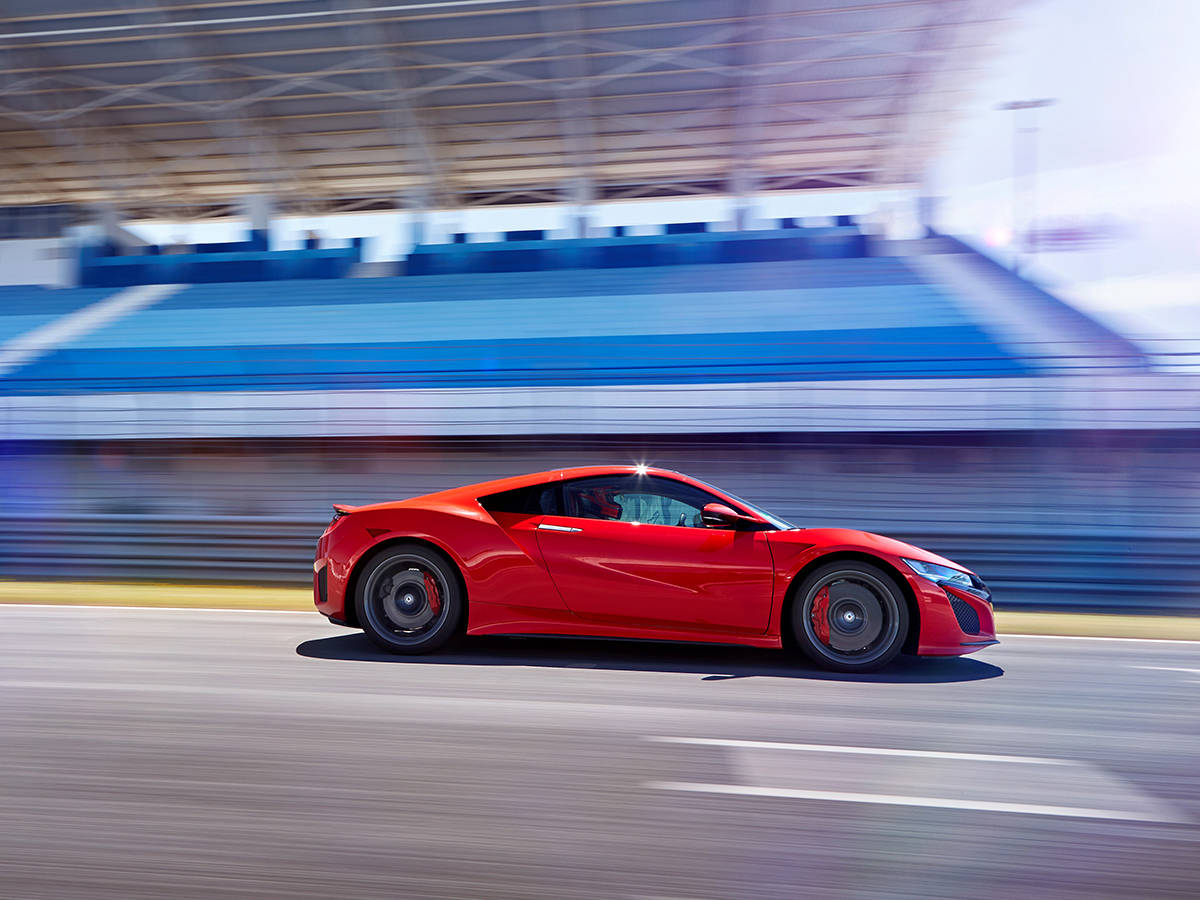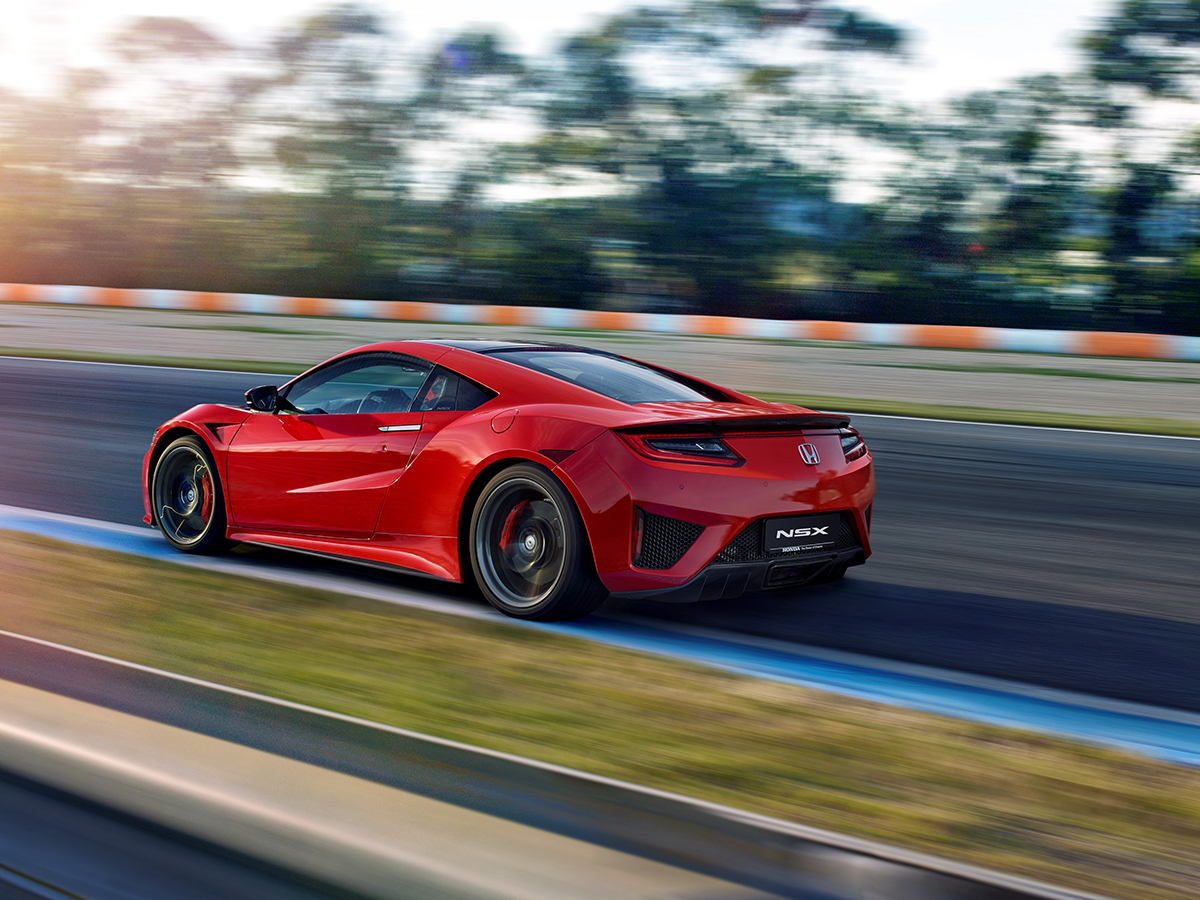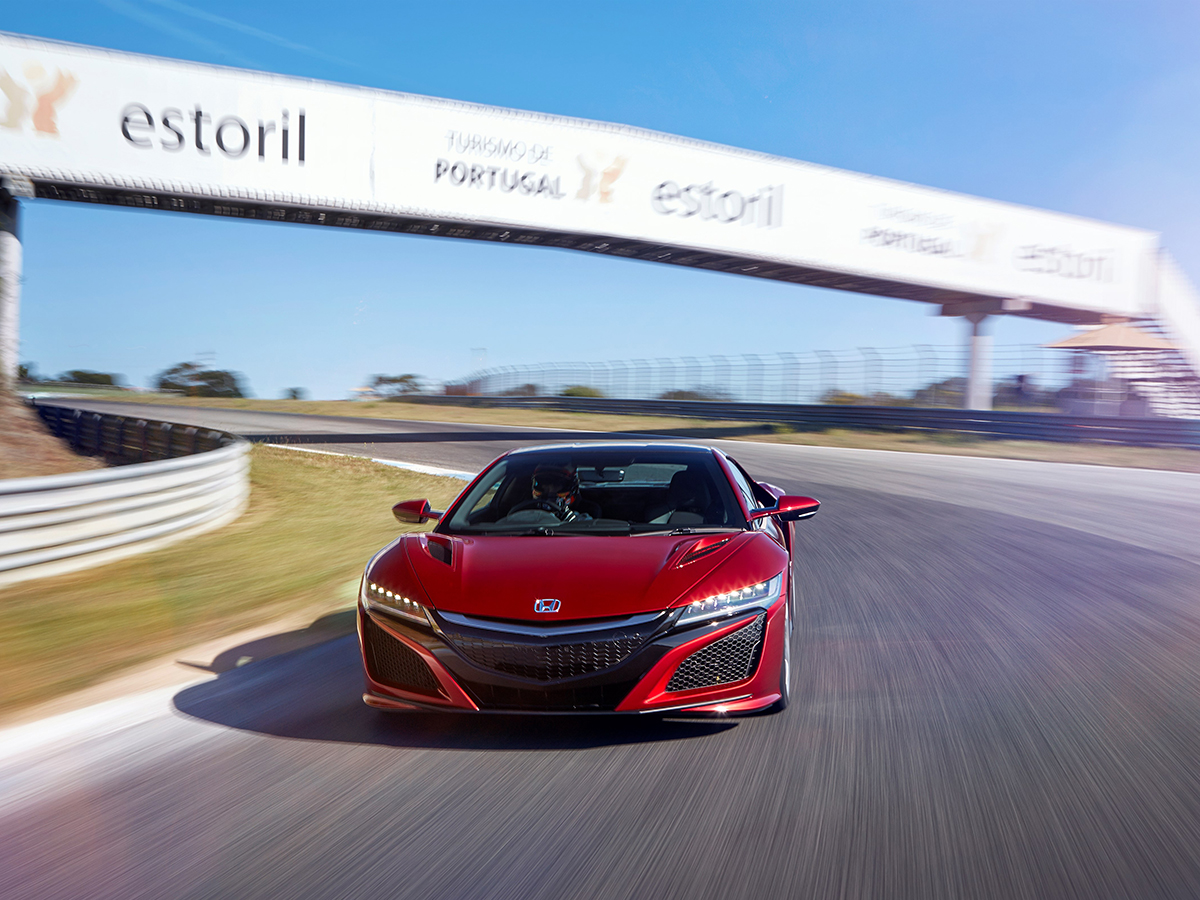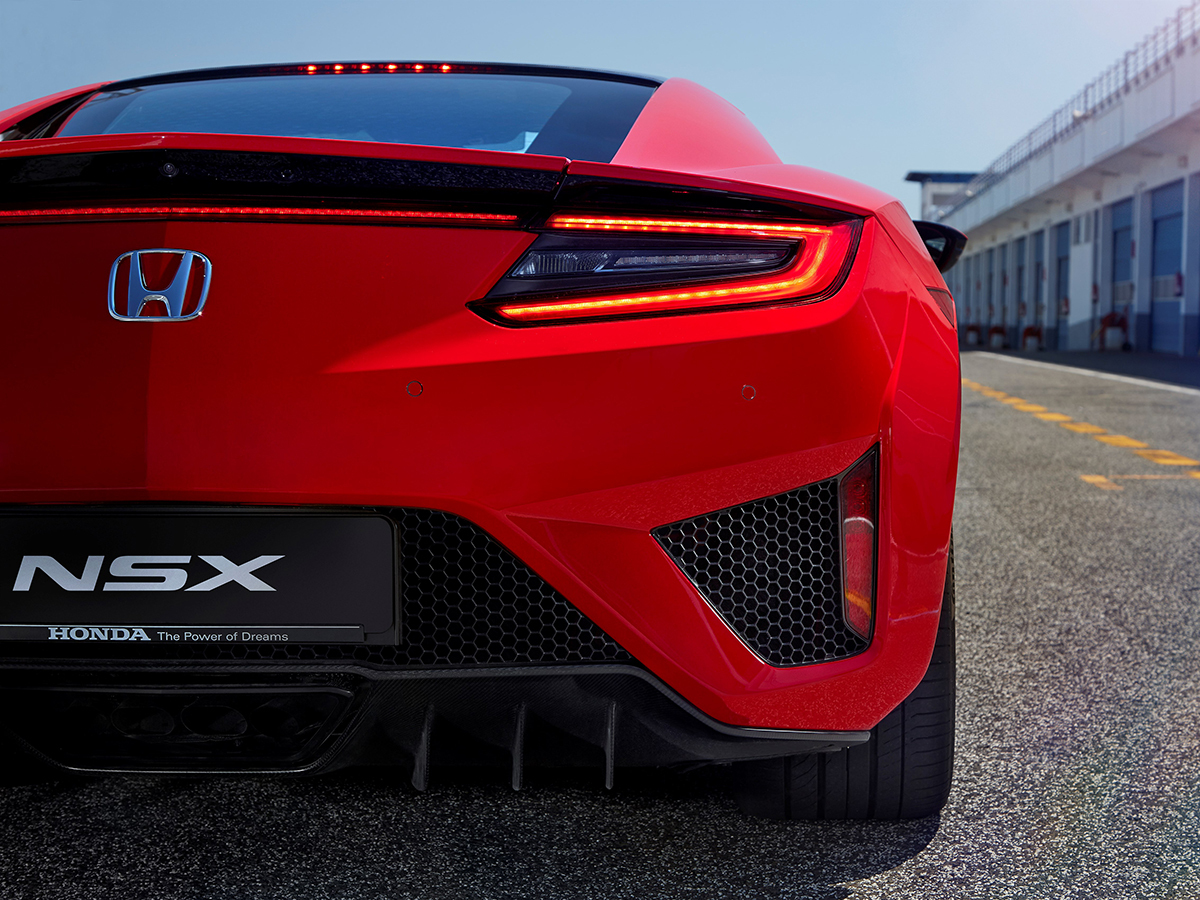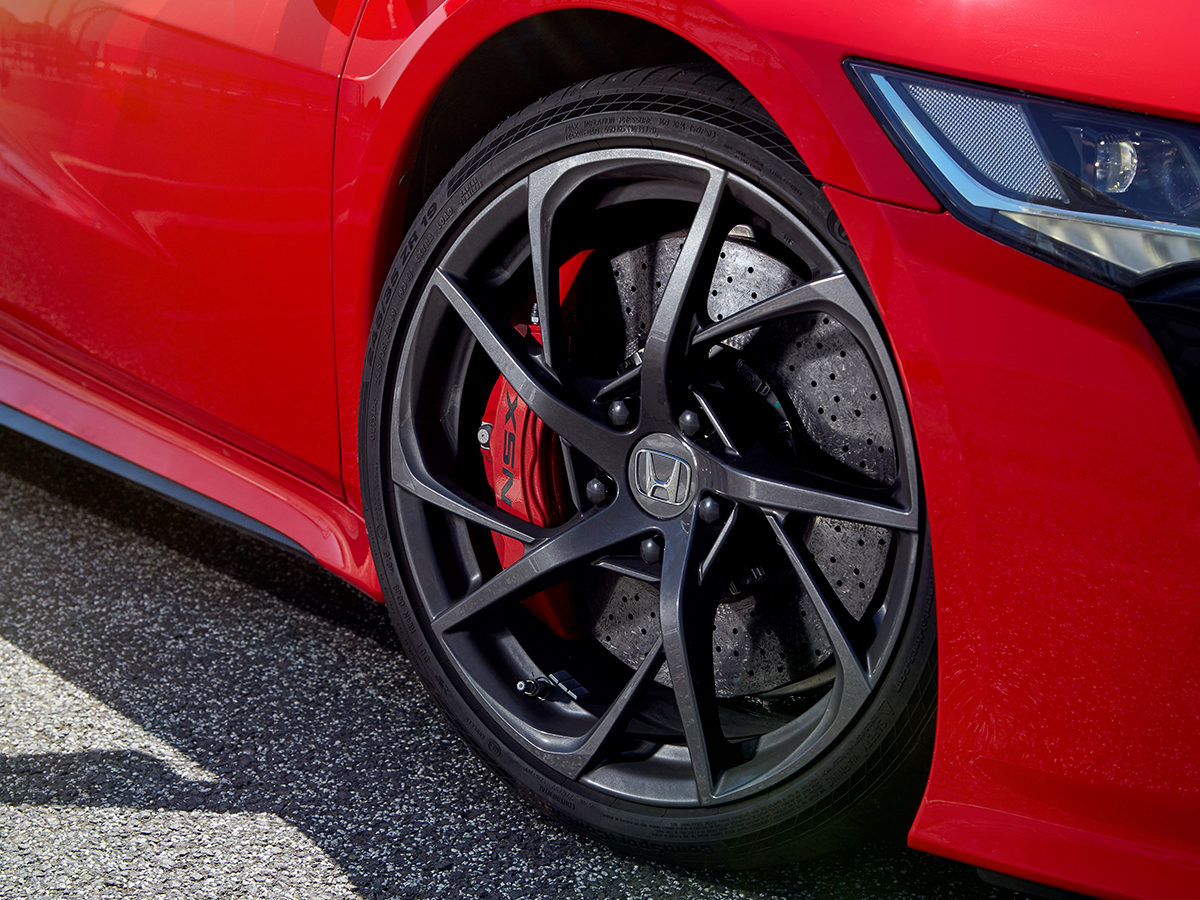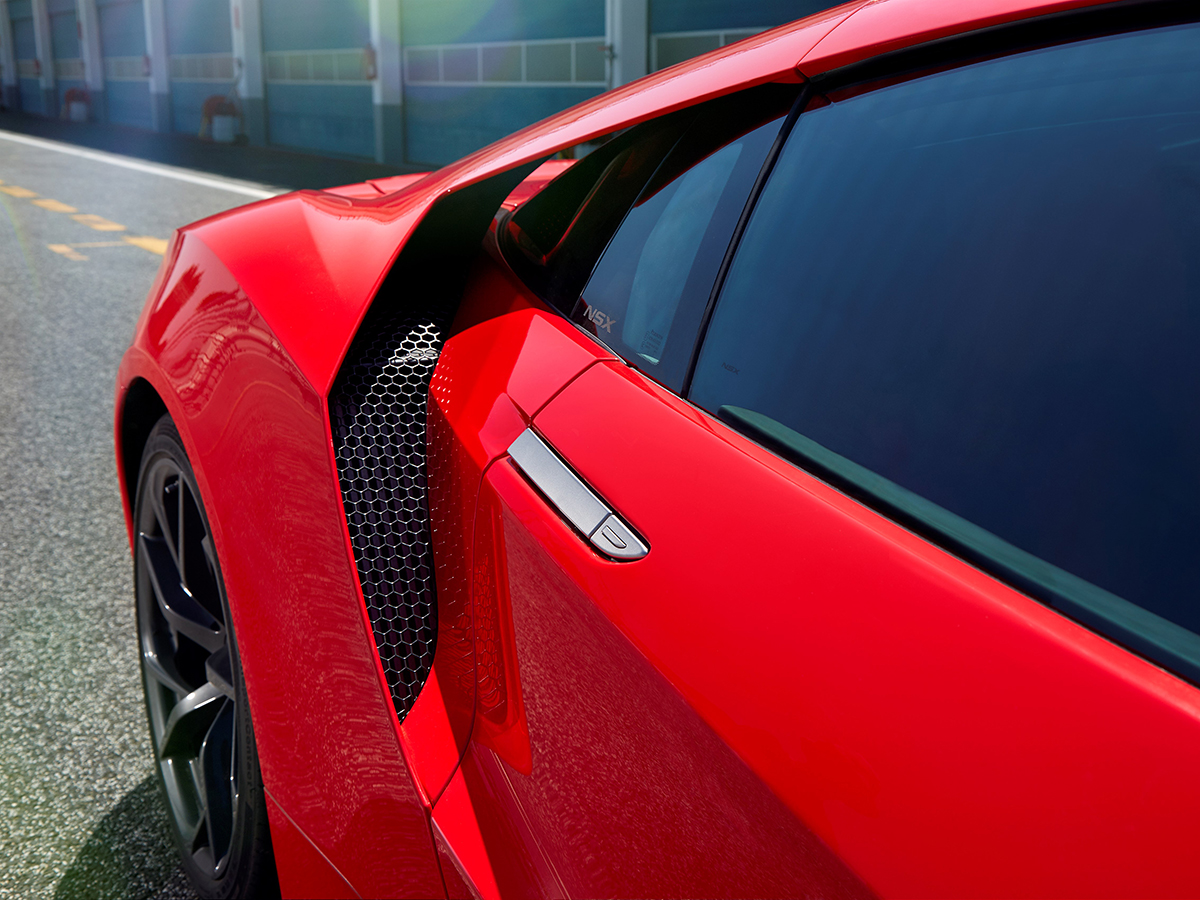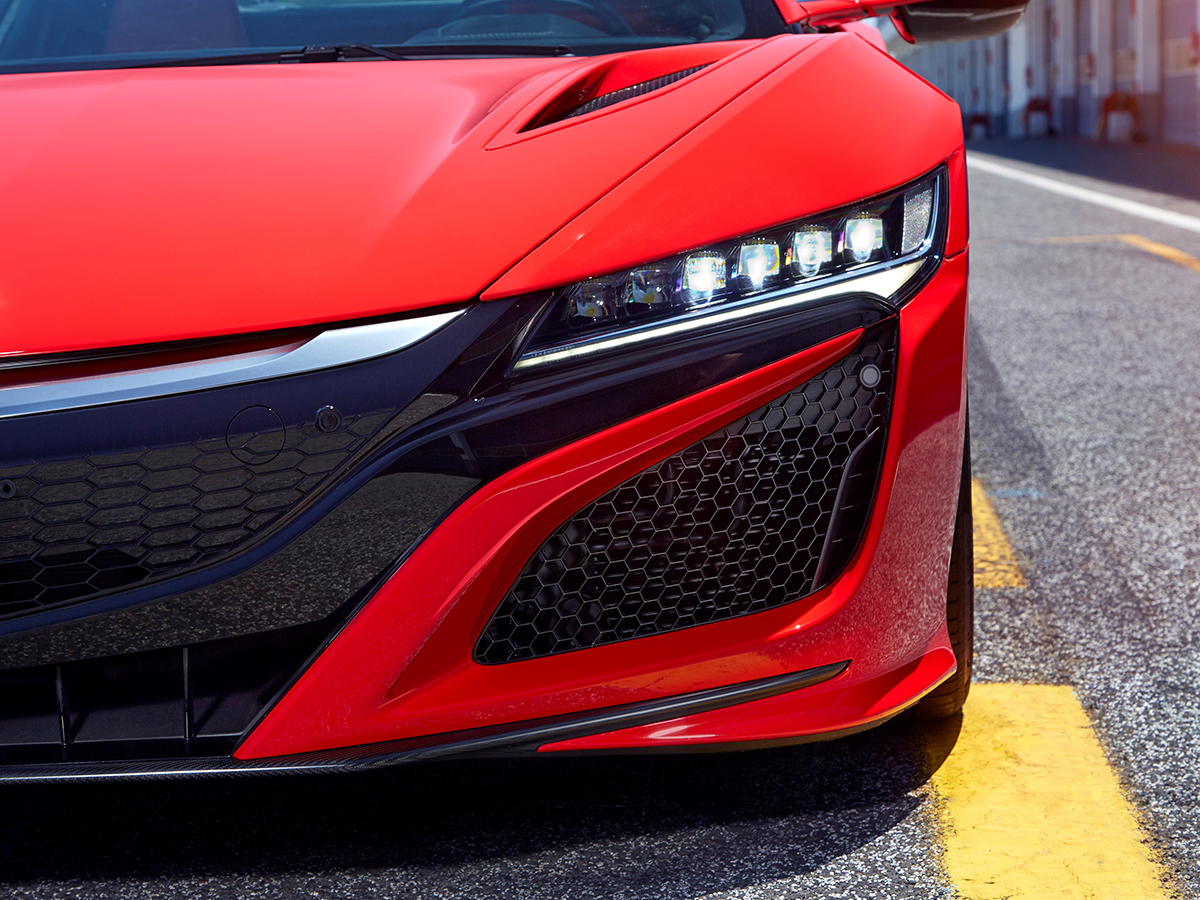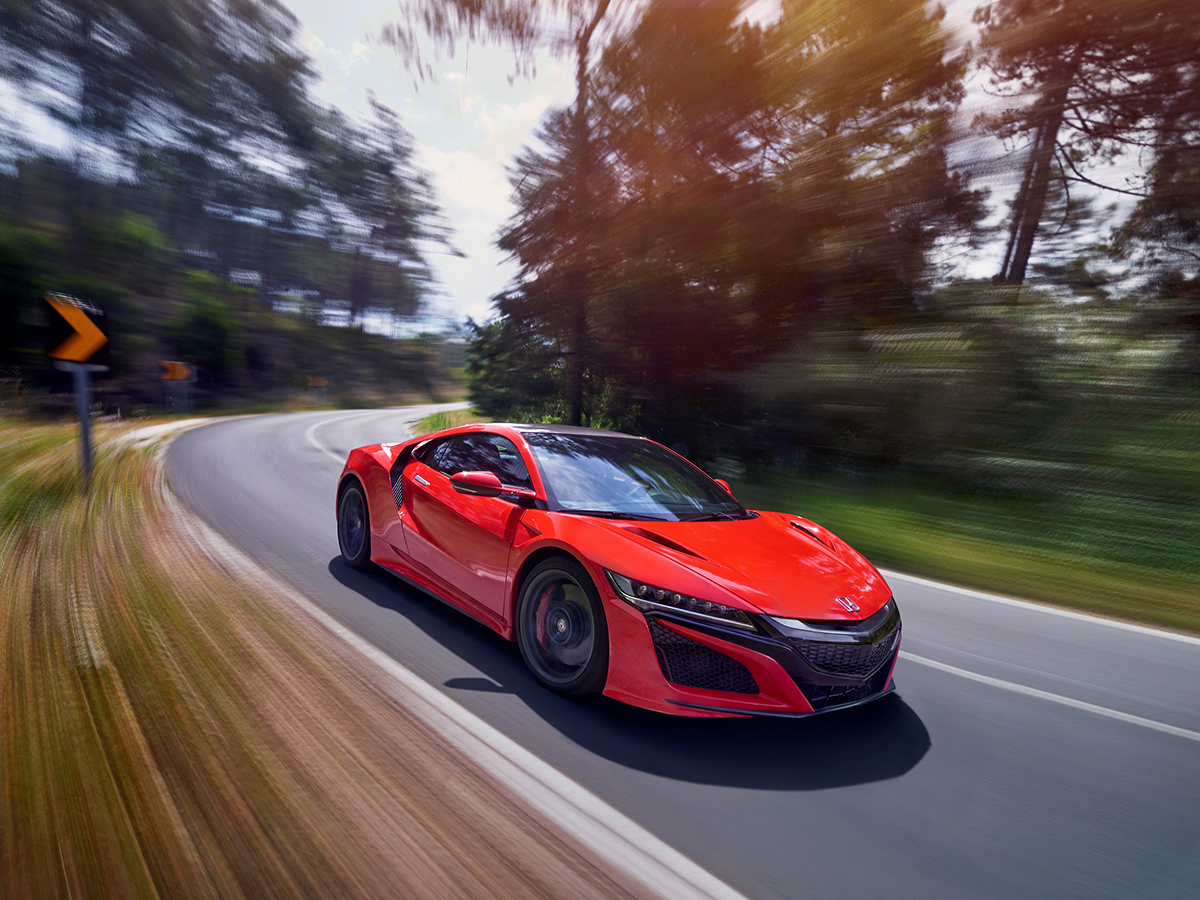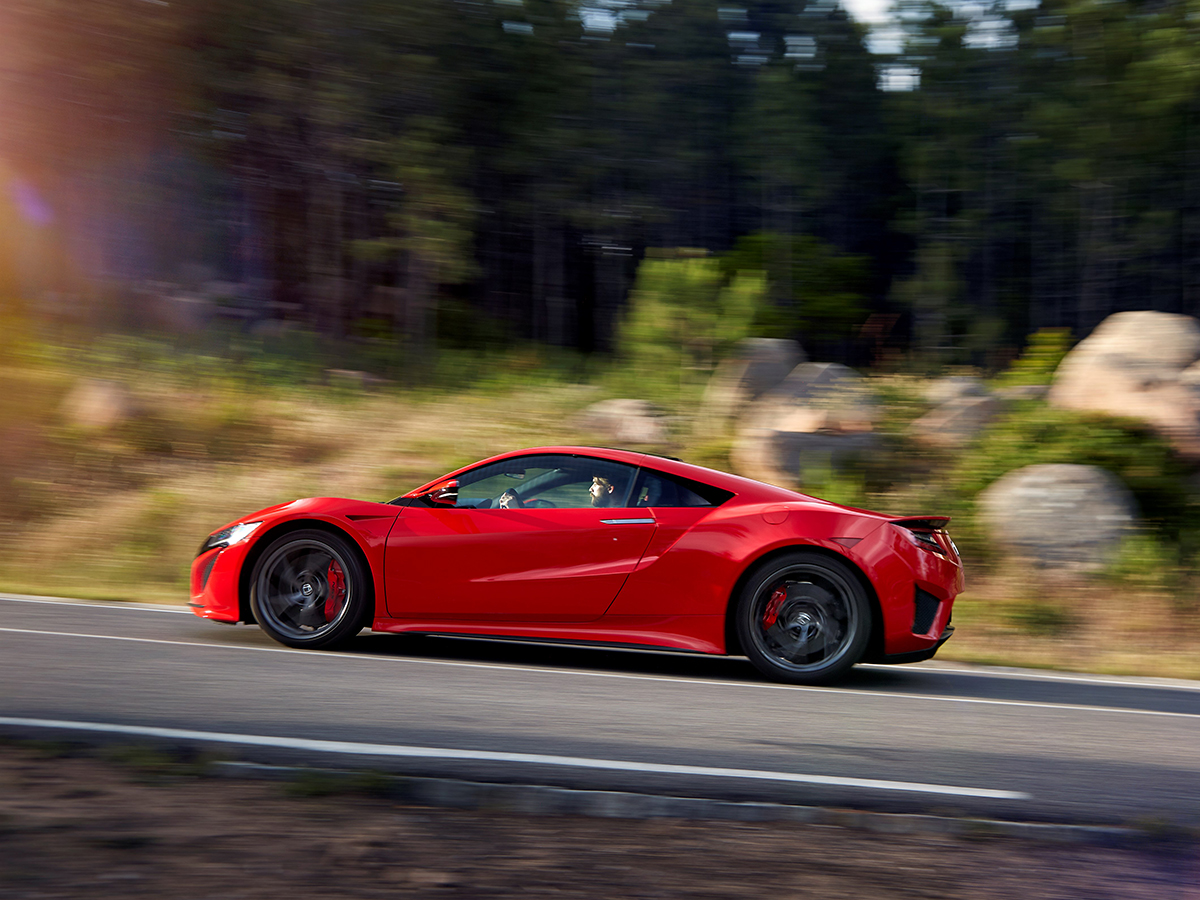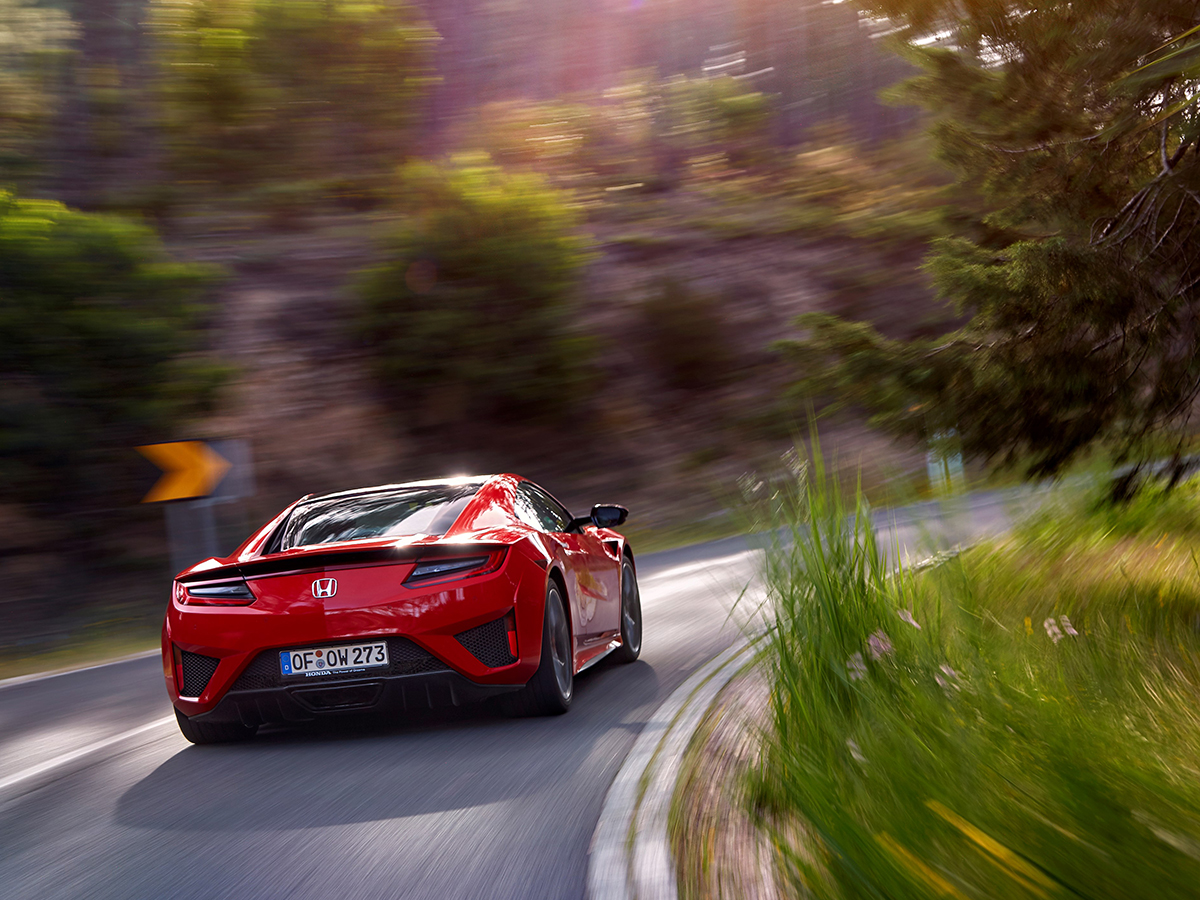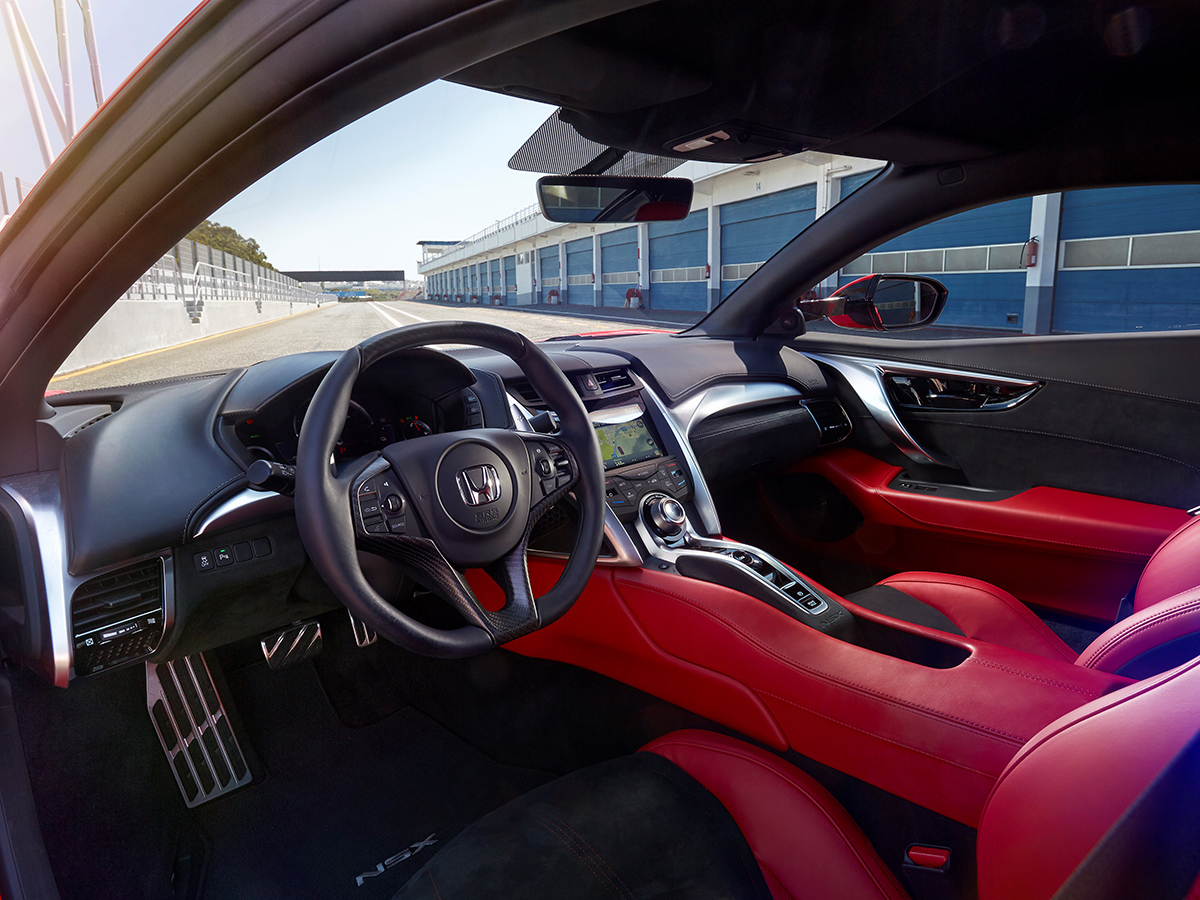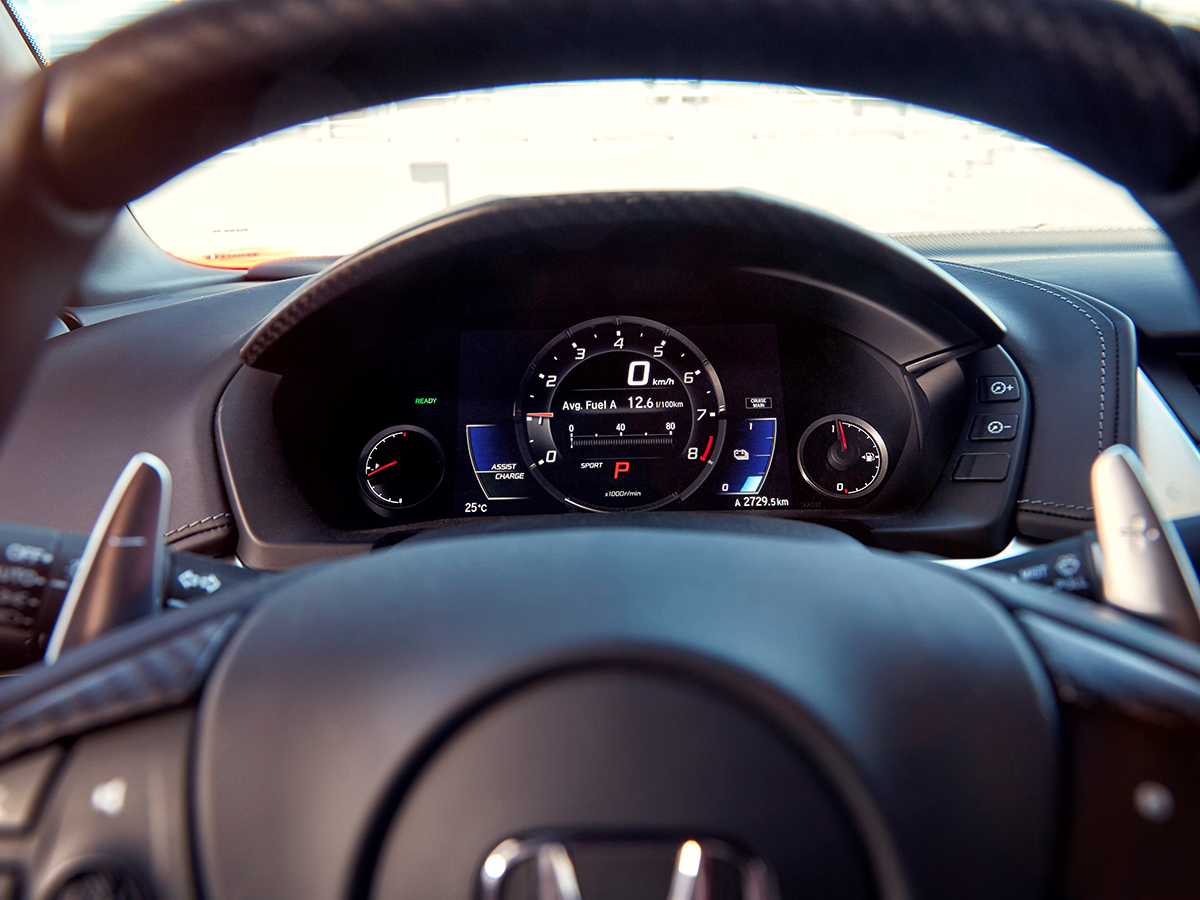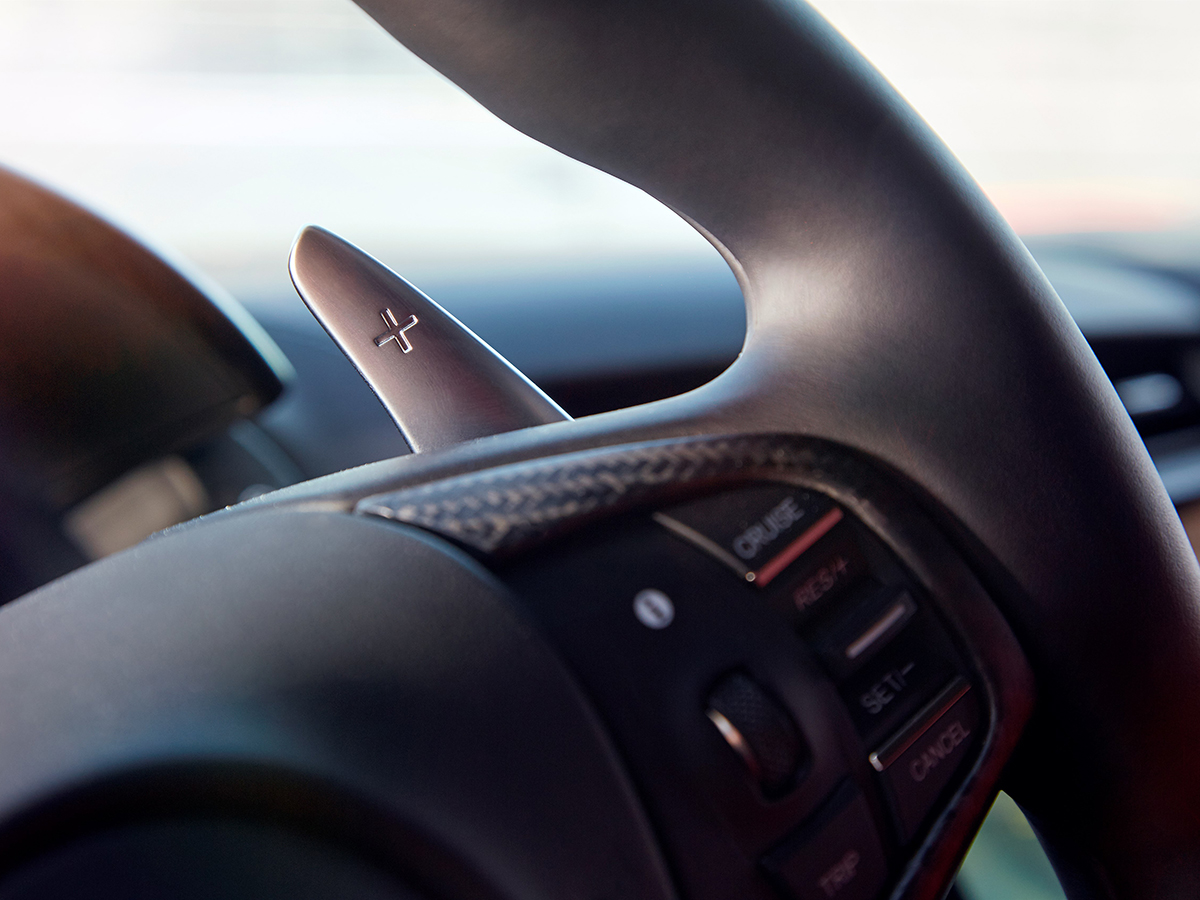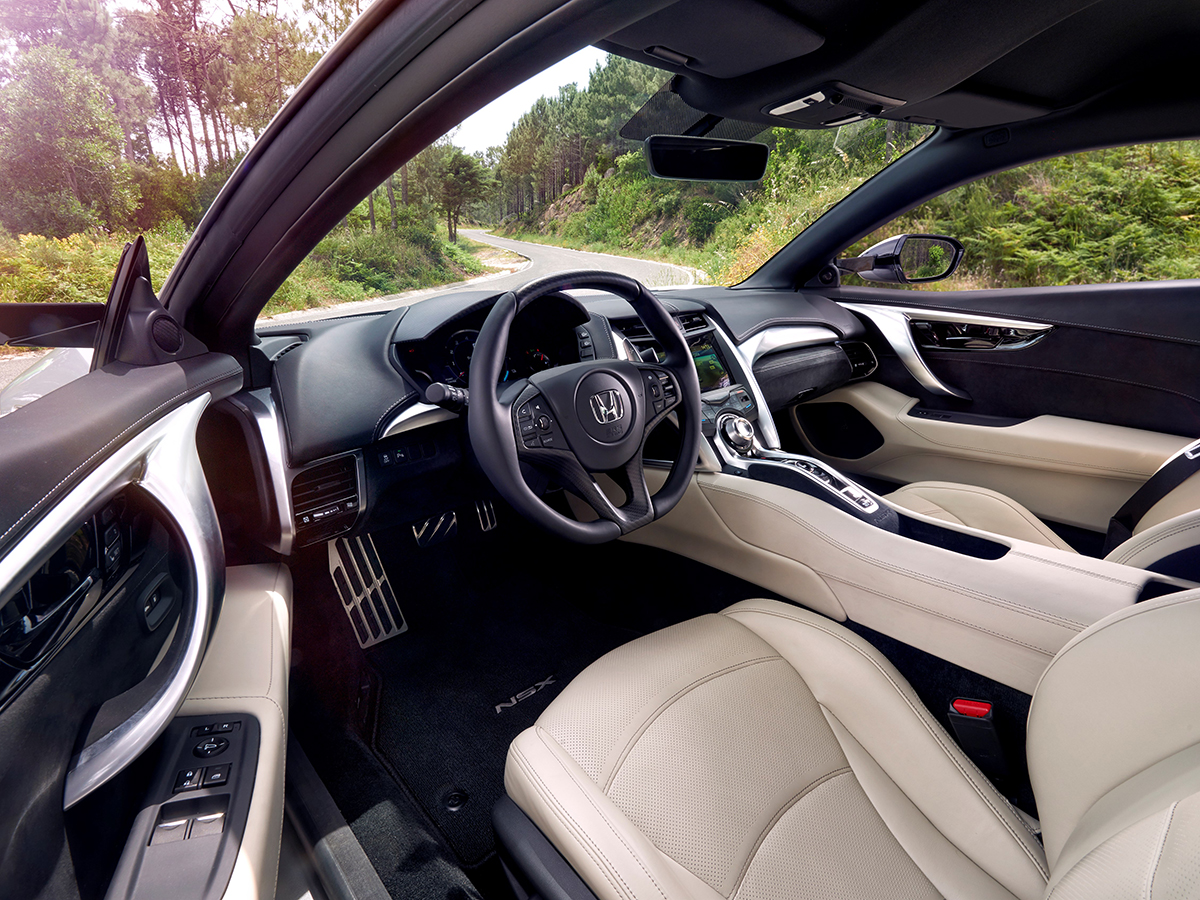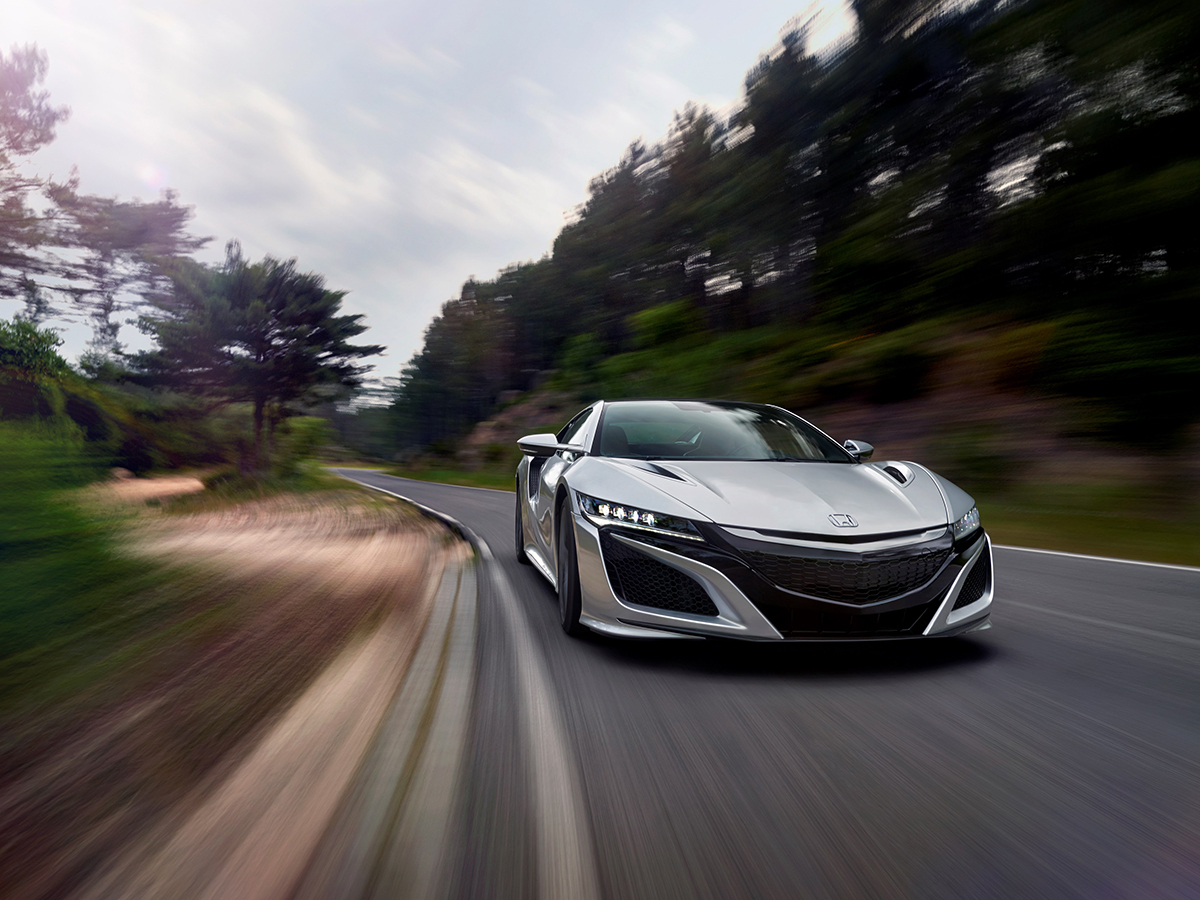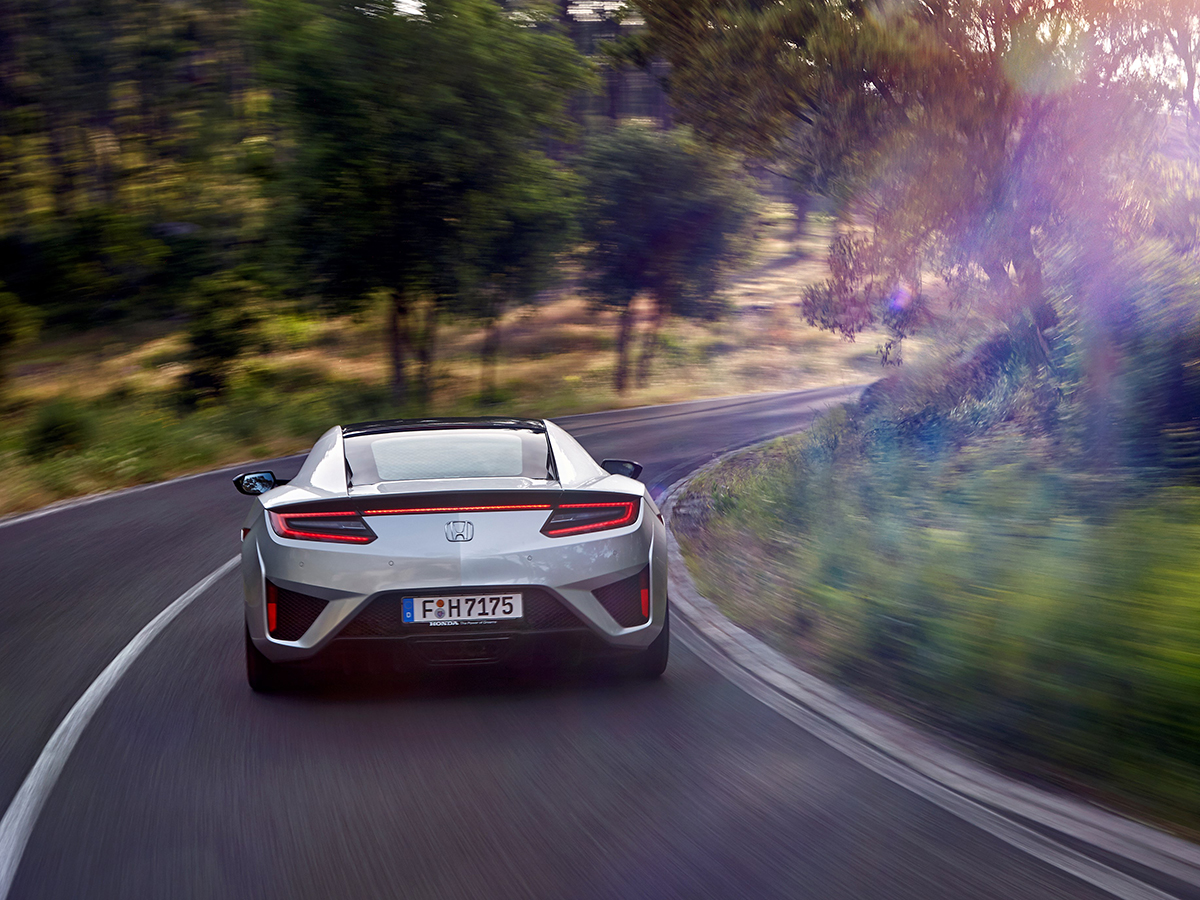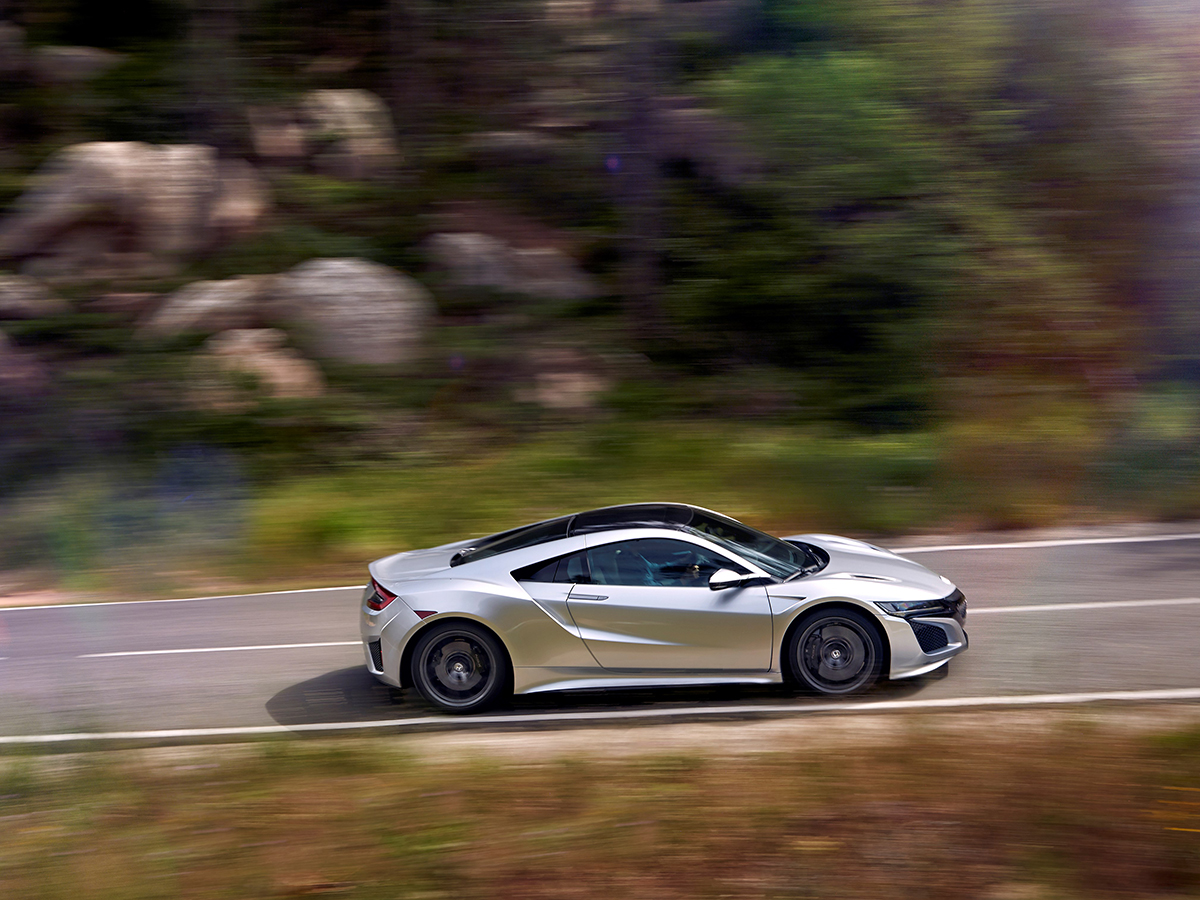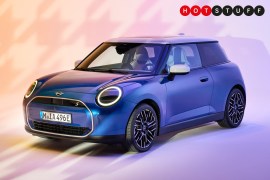Honda NSX (2016) – first drive review
A McLaren P1 for a fraction of the price - what's not to like?
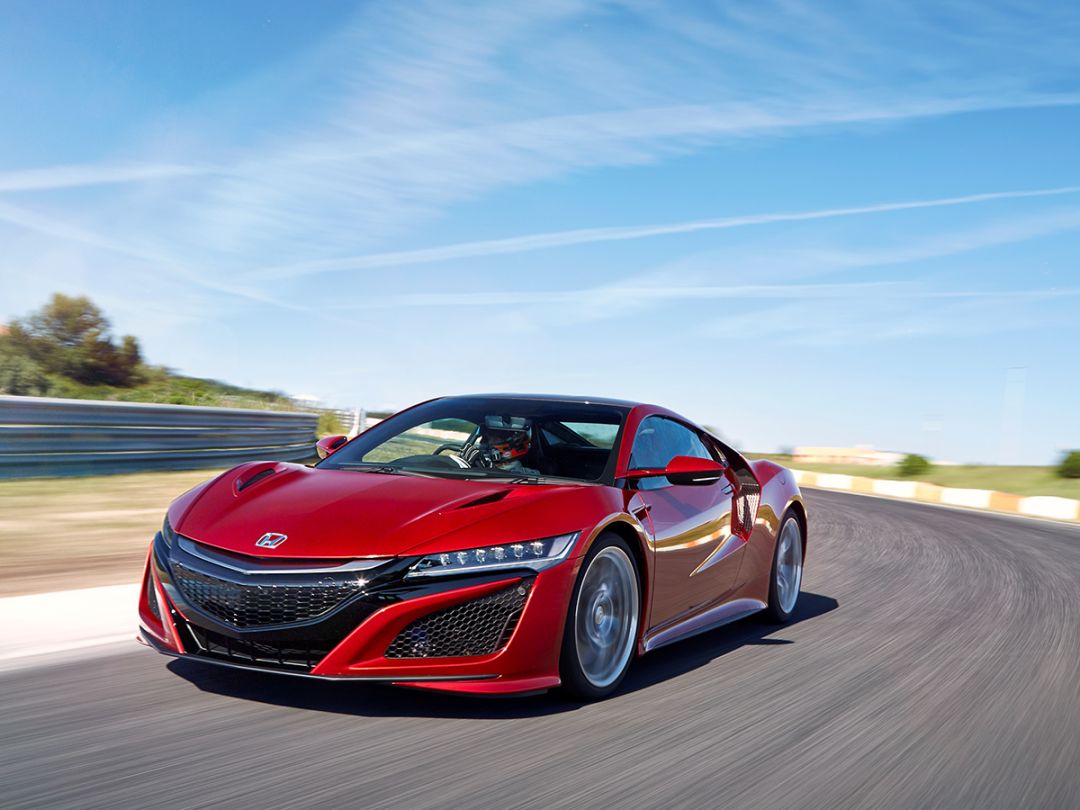
Honda used to rool the roost when it came to Japanese performance imports. The fruity Civic Type-R regularly topped best hot hatch lists back in the 90s, the S2000 was a proper rear-wheeled drive sports car and the NSX was, well, quite simply a legend.
Things have been decidedly boring in more recent years, with granny wagons and sedate estates replacing high-revving VTEC engines and supercar game changers – but now that looks set to change.
The new Civic Type-R is as brutal as a modern hot hatch comes and Honda is finally ready to unleash its reimagining of the NSX – a vehicle that’s been 11 years in the making and manages to pack hypercar technology into something that costs as much as an ‘entry-level’ sports car.
Can it truly rival the machine that Ayrton Senna once raved about? We flew to the roads and race circuits of Portugal to find out.
Speed science
Peer through the glass of the rear hatch and you’ll be greeted by a 3.5-litre, twin-turbo V6, with a cylinder bank deliberately angled at 75-degrees to keep the centre of gravity as low as possible. It develops a hefty 500bhp and 406lb ft of torque, but that’s only half the story.
Tucked behind the driver and passenger seat is a large battery pack that powers not one, but three electric motors. Honda calls the two driving the front wheels the Twin Motor Unit (TMU) and the one at the rear axle the Direct Drive motor.
This electric power gets delivered in a similar way to the £650,000 Porsche 918 Spyder and the McLaren P1, adding boost to the V6 engine in order to fill the torque gaps and deliver a mad 573 total bhp for instantaneous, mind-melting acceleration.
Unfortunately there’s no plugging this bad boy in overnight to charge, but it is possible to cruise around town on battery power alone for a few miles. It generates kinetic energy from the brakes and uses the engine as a generator to keep itself topped up, just like the humble Toyota Prius.
The electric motors play a big part in how the NSX handles, too. It might sound more at home on a fighter jet than a car, but drect yaw control helps tweak the amount of torque delivered to each wheel on a minute level, hundreds of times a second, to drag the car into corners and catapult it out with maximum grip and efficiency.
Brain-boggled? Fear not, it’s a complex system that goes way beyond most ‘analogue’ sports cars – and one that gets even more interesting when you slip behind the wheel.
Motorway missile › Nissan GT-R (2017) first drive review
Multi-talented
The compact proportions and comfortable seats make the new NSX a fairly unintimidating place to sit. It’s easy to get settled behind the wheel, and the buttons and dials are all laid out in an intuitive way.
There’s a large rotary dial in the centre of the dash that controls the various driving modes. We started in ‘Quiet’, which muffles the typical bark from the V6 when you press the ignition switch.
Feather the throttle and you can ease away on battery power alone, with the V6 only called into action when the revs and speedo climbs. Even then, it’s restrained – the exhaust gasses get pumped through baffled pipes and the ride is set to its spongiest for maximum comfort.
Flick the rotary dial to ‘Sport’ mode and the engine comes into life, but flick it again to ‘Sport+’ and the real aural delights begin. There’s a 25dB difference between the modes, with the awesome engine note pumped into the cabin when ‘Sport+’ is selected.
Finally, there’s a ‘Track’ mode that unshackles all 573bhp from both the V6 engine and the electric motors, pairs back the traction systems, and lets you engage Launch Control.
Simply mash the brake pedal with the left foot, bury the throttle, wait for the revs to start bouncing at around 2,000rpm and then release the brakes. The acceleration hits you in the kidneys like a sledgehammer.
Honda refuses to release official 0-62mph sprint figures, but we would happily wager that it’s under 3-seconds. Top speed is somewhere around the 200mph mark.
Hyper hatch › Ford Focus RS (2016) first drive review
Cruise missile
The new NSX is a true track day weapon, with its hybrid powertrain offering ballistic acceleration out of corners and its trick direct yaw control doing its best to make fools look like F1 heroes.
There’s enough movement at the rear to still make it a challenge when pushed, but it inspires confidence and constantly teases the driver to take corners faster and get on the power earlier. The grip levels are fantastic.
Even so, the neat footprint and great visibility make it really easy to live with everyday. Parking is a doddle and it feels small enough to attack a winding B-road without worrying about oncoming traffic.
Plus, the selectable modes mean it can settle down and become a comfortable motorway cruiser when the mood takes. Granted, the V6 does drone on a bit in anything but ‘Quiet’ mode, but that’s just a good excuse to slip it in ‘Sport+’ and give it the beans.
The only downside? There’s no way to tweak the modes for personal preference. We’d love to have the exhaust note blaring and the steering at its sharpest, but the suspension set to comfort when tackling the bumpier roads of Britain, but it’s not possible… yet.
Luxury living › Jaguar F-Pace (2016) first drive review
Cabin fever
For such a technologically accomplished vehicle, the NSX is a bit of a disappointment inside the cabin. Hop out of an Audi R8 or Porsche 911 and the Honda looks dated – and that Garmin sat-nav is borderline atrocious.
Granted, savings had to be made somewhere, and the cheap plastics, fiddly touch screen display and basic switchgear are testament to this point. Still, even the stereo sounds tinny, and at £137,950, we’d want a little bit more for our money.
A mid-life refresh will undoubtedly introduce Honda’s next generation human machine interface, so for those keen on creature comforts, it could be worth waiting.
Drop the top › Range Rover Evoque Convertible first drive review
Honda NSX initial verdict
If this write-up has tempted you to break out the credit card, good luck – the UK’s first allocation of 60-odd cars has sold out and the next couple of years are pretty much accounted for, which comes as no surprise because this thing is an engineering masterstroke.
Yes, it may sport an underwhelming cabin and rubbish storage space, but it offers something very different to this ‘entry-level’ supercar market.
Its track prowess smacks of the Nissan GT-R, harnessing the latest tech to ensure it goes around a circuit as efficiently as possible. The cutting-edge powertrain and selectable driving modes make it very easy to live with every day too.
This may not be a true game changer like the original NSX, then, but if Ayrton Senna were alive today, he’d most certainly have one of these in his garage.
READ MORE › The 10 best cars in the world right now
Tech specs
| Engine | 3.5l turbocharged V6 + electric motors |
| Transmission | 9-speed DCT |
| Power | 500bhp @6,500rpm (petrol engine only), 573bhp with electric motors |
| Torque | 4066lb ft @2,000-6,000rpm (petrol engine only), 476lb ft with electric motors |
| Weight | 1763kg |
| Fuel economy | 28.0 MPG (combined) |
| Emissions | 228g/km |
